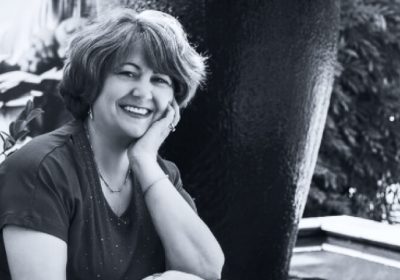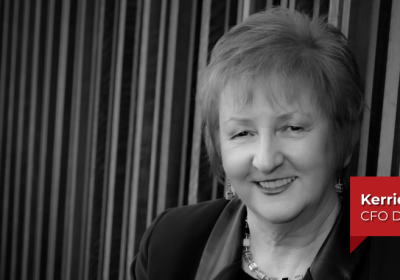
- Author: Emma Foster
- Posted: April 29, 2024
Standing out from the crowd: Tim Steer, CFO Birchal
As capital markets navigated troubled waters in the past year, the fast-growing crowd-sourced funding industry remained a resilient source of equity, says Birchal CFO, Tim Steer.
While IPOs and venture capital markets tumbled during 2023, funds raised through crowd-sourced funding platforms held firm, bolstering the nascent industry’s position as a resilient source of equity for early stage businesses in Australia.
“Founders were able to continue raising capital throughout the year across the crowd-sourced funding industry,” says Tim Steer, CFO of Australia’s leading crowd-source funding platform, Birchal.
Industry-wide, 82 fundraising campaigns saw businesses raise around $71 million during 2023, matching the previous year’s funding level. Just over 75 percent of the volume came through Birchal, the rest through peer platforms Equitise and OnMarket plus a few smaller players. This compares to 45 IPO listings on the ASX in 2023, down from the five-year average of 120 listings a year, raising $1.1 billion.
It brings the total raised through licenced crowd-source funding platforms in Australia to around $294m – facilitated by 164,000 investments in 389 deals – since the regulated industry kicked off in 2018.
“The awareness of crowd-sourced funding is definitely growing,” says Steer, who joined Birchal in 2022 – four years after the digital marketplace was created – having jumped at the opportunity to join a team shaping a new industry helping early-stage businesses to grow.
“It’s an attractive and flexible source of funding for a number of businesses, depending on their stage and what they’re trying to do, and as we get more businesses, with more variety coming through, there’s a growing realisation that it’s applicable for a really wide range of businesses.”
Industry myth-busting
As awareness grows, Steer says misperceptions about crowd-sourced funding are starting to break down, including the outmoded view that raising crowd-sourced funds sends a negative signal that a business hasn’t been able to raise elsewhere, or will make it unattractive to VCs down the track.
“You only need to look at the growth in overseas crowd-sourced funding markets that are a few years ahead of Australia to see that it’s a legitimate and critical funding source within the start-up ecosystem, and a legitimate investment option,” he says.
“This isn’t about facilitating donations to businesses. It is companies issuing shares to the public, in a regulated environment, in a way that is less complicated and less expensive than an IPO. And it’s a really transformative way for businesses to both get money in the door and build a community of investors that are passionate about their business.”
He adds that it can also be a useful foundation to move towards other forms of funding, such as venture capital or IPOs, as a company matures.
“Getting ready for a crowd-sourced funding round means getting your governance arrangements in order, ensuring you’re complying with all the requirements, being able to tell your story, explain your business model and your mission to potential investors,” Steer says.
“As an intermediary, we help and guide businesses through that process, and we’ve found that some businesses, like Thriday, who have gone through the rigours of raising through Birchal, have gone on to raise through venture capital, and it made that second process much easier.”
Birchal’s own raise
Putting its money where its mouth is, Birchal has twice used its own fundraising platform, most recently bringing in $2.4m in December 2023, adding to the $3m it raised in 2022, to invest in growth.
Steer confirms that a range of funding options were considered before landing on crowdfunding as the preferred option, based on the team’s confidence in the process. The raise also enabled Birchal to test a theory that it was possible to raise funds during the December to January period, typically a quieter time for capital markets.
“We were really pleased to see that we had support from people who were still investing through that period, which proved our hypothesis that you can be open at any time for raising capital.”
Diversity of crowdfunding hunters
Birchal was among 57 business to raise funds through Birchal’s platform in the past year, with businesses hailing from a wide range of sectors – from an AI-driven property management platform to a waste-to-energy tech company – and at different stages of development.
Industry-wide, the most invested sector for three years running has been food and beverage. The past year saw 24 successful campaigns for this sector, raising a total of $21.6m, including for low-sugar and non-alcoholic drinks maker Naked Life, distiller Old Youngs, and tea and spice maker Roogenic.
The biggest deal of the year was medicinal cannabis company, Cannaponics, which raised $5m – the maximum level allowed under industry legislation (a level that Birchal’s co-founder Matt Vitale would like to see lifted to $10m). Cannaponics was among nine health-care related offers, while other popular sectors included sustainability with offers from the likes of recycling tech platform Recycle Smart and ocean cleaner Seabin; and consumer goods businesses like vegan body product maker Stuff and thermal products brand Techni Ice.
Steer says the pipeline of offers remains strong and he expects the diversity of businesses coming to the platform to grow.
“We’re having some really intriguing conversations with a broad range of businesses, and that’s exciting to see,” he says. “I’m optimistic about where the medium- and longer-term future is going – we’ve got a lot of growth ahead of us as an industry.”
Exploring liquidity options
Given the combination of both the nascent stage of the industry and the typically early stage of businesses opting for crowdfunding with long-term investment propositions, the industry has to date seen very few ‘exit’ events to realise investor returns.
“Just as you’d be expecting as a VC firm, these are long term investment plays, so exits will come further down the line as the businesses mature,” Steer says.
Birchal is also exploring ways to improve investment liquidity options for investors, including building its own trade platform, Birchal Trade, although Steer says it’s an area that must navigate regulatory limitations. Birchal has initiated a pilot on the trade platform using its own shares and hopes to run additional pilots with other companies.
“At the moment, it’s a facility that will work for some businesses, but not necessarily all. It would be great at some point in the future to have other options for more liquidity, and it’s something that we continue to assess.
“In the next few years, I expect we’ll start to see that expanding and becoming a larger piece of the architecture.”
A strong focus on growth
With plenty of scope for Birchal’s continued growth within the expanding industry, Steer’s priorities are to strengthen and expand the start-up team’s processes and governance structures, while continuing to advocate the industry and support founders as they come through the crowdfunding process.
“It’s great to have this goal of growing an industry and to be able to see tangible results with every raise that we complete for a business, and to know that’s capital that is going to make a meaningful difference to them and allow them to grow,” he says.
“Everybody in the team is really passionate about what we’re doing, so it’s a great place to be.”








